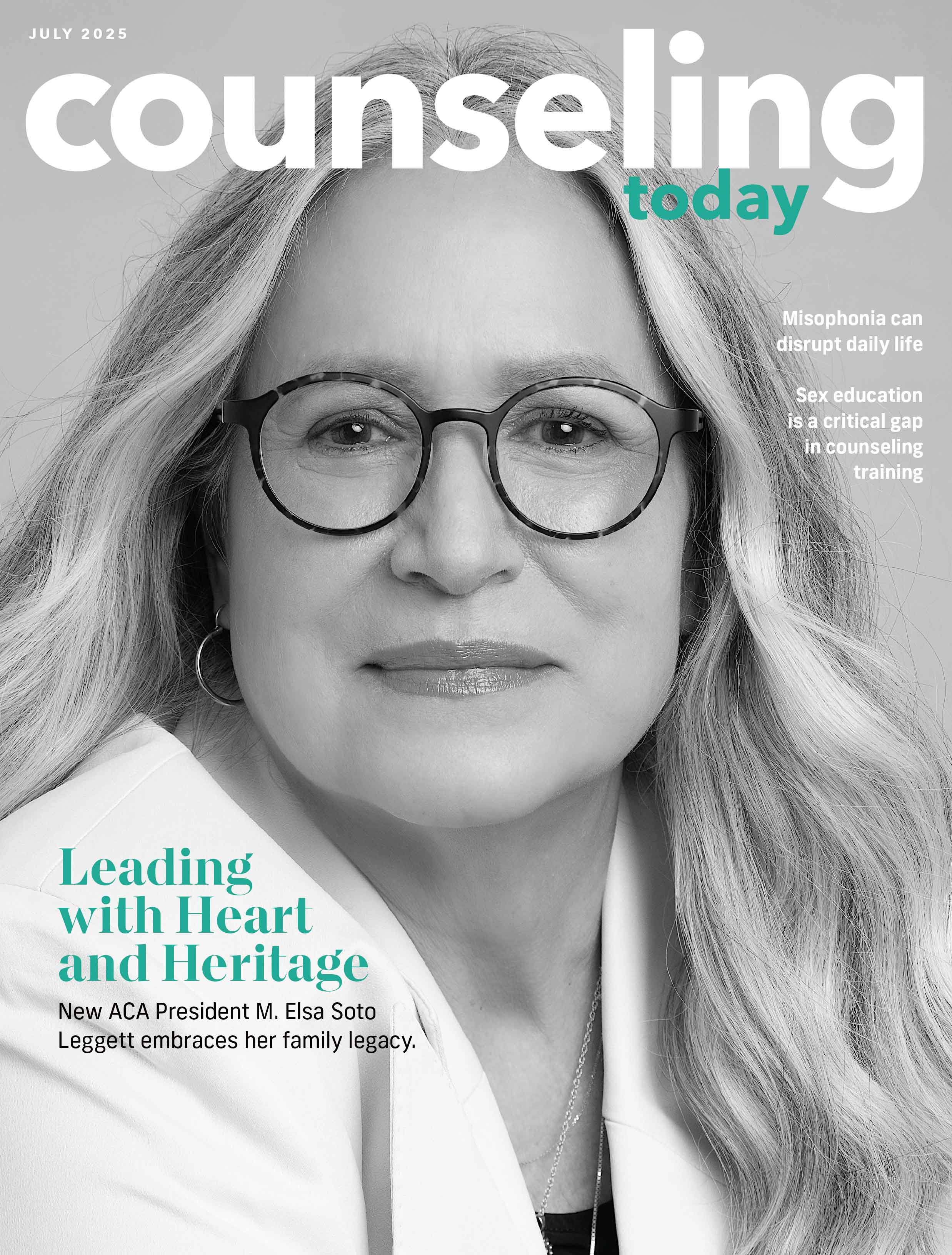From the President
From the President: Recovering historical memory
November 2023

Reviewing my past columns, I realize that while I intend to keep our membership informed of the American Counseling Association’s actions, preferences and direction, I have somehow neglected to discuss how our history is an essential element that will help define and shape our future. Although I have not entirely left out the history of our profession in my columns, I realize that to talk about decolonization, liberation and transparency, I must also discuss the tools of oppression and how the erasure of history through colonization provides a gateway for people to gain power over those who cannot defend themselves.
As we approach the holidays, which are often a time when people reflect and recount the special moments of the year, I thought it could be helpful for us as helpers, healers and acompañantes to break down the idea of recovering historical memory. We must remember that history is not good or bad; it’s just history. In other words, it is not something we can distort until it conforms to a version that we like better. History is what it is.
The act of erasing historical memory through the imposition of new institutions such as education, religion, and political and legal structures is at the center of creating a colonial mentality and reproducing and propagating the deficit model. This erasure is an act of structural violence — something the counseling profession has fought since our beginnings. By exploring our history, we rediscover that our work began by helping those who were unable to fend for themselves and were neglected by everyone else, but unlike other professions, we used the powerful tool of education to create better opportunities, critical thinking and a better future. I briefly touched on this history in my September column but didn’t elaborate.
Counselors can better understand the psychological and social effects of structural violence and oppression through Ignacio Martín Baró’s concept of recovering historical memory, which allows us to better grasp how our profession always responds to the needs of those we serve. We must emphasize collective memory and how acknowledging and confronting one’s history can be empowering. Recovering historical memory has affected psychology, social justice and human rights, particularly in contexts where communities have faced historical trauma and political violence.
The research many ACA members are doing shows how structural violence is a central concept in liberation, underscoring the importance of addressing the root causes of psychological suffering and oppression. Professional counselors, grounded in the understanding of recovering historical memory, seek to empower individuals and communities to challenge and transform the systems and structures perpetuating violence and inequality, ultimately allowing our clients to strive for social justice and liberation from oppressive conditions. ACA will remain at the forefront of this issue to provide its members with the necessary tools to prevent the erasure and substitution of the history of oppressed and marginalized communities.


